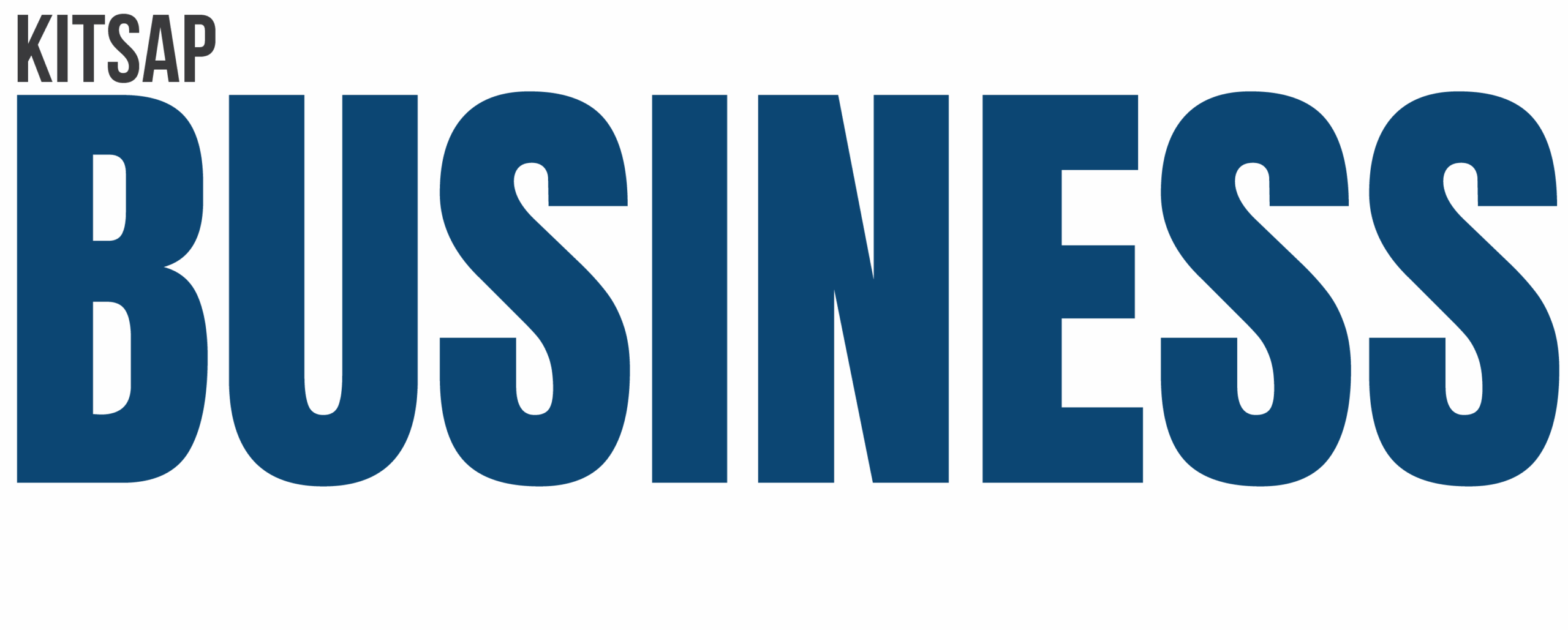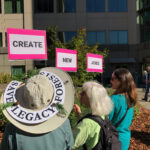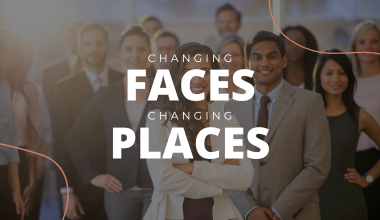Jason Driver is steering one of Kitsap County’s most vital community institutions through a period of change and growth. With nearly 30 years of experience in libraries and youth advocacy, Driver is focused on strengthening the library’s culture, deepening community partnerships, and reimagining what a modern library can be.
As Executive Director of Kitsap Regional Library, Jason Driver is helping to shape the future of one of the county’s most vital community institutions. With nearly three decades of experience in public libraries and youth advocacy, Driver brings both a passion for equity and a belief in the power of libraries as hubs for connection, learning, and innovation.
Since taking the helm in 2022, he has focused on strengthening the Library’s culture, deepening collaboration across the community, and guiding the organization toward long-term sustainability. Under his leadership, Kitsap Regional Library is reimagining what a modern library can be—expanding beyond books to serve as a catalyst for ideas, creativity, and opportunity.
About Kitsap Regional Library
Serving more than 274,000 residents, Kitsap Regional Library is a cornerstone of community life, offering nine branch locations, mobile services, and a robust digital library. With more than 400,000 physical items and over 63,000 downloadable ebooks, audiobooks, and magazines, plus access to 50+ free digital research tools, the Library inspires curiosity and connection. Guided by its mission to foster growth, belonging, and opportunity for all, the Library continues to create spaces and services where individuals can thrive.
In this Q&A, Driver shares his personal journey, his vision for the Library’s evolving role, and why he sees libraries as essential to a thriving community.
Can you briefly introduce yourself and share a bit about your background?
I’ve spent my career in public service, working to ensure that libraries remain vital centers for learning, connection, and opportunity. Before coming to Kitsap, I served in leadership roles at the Chicago Public Library, leading systemwide initiatives in early learning, branch operations, and community engagement. I began my career in libraries in 1993, working with adults, and I eventually transitioned to working with youth and families. Along the way, I’ve worked in social services advocating for youth and young adults in many capacities, including mentoring, child welfare, early intervention, and workforce development. My library journey has always been rooted in the belief that libraries catalyze personal and community transformation.
What brought you to the world of libraries, and what continues to inspire your work today?
Libraries have always been more than buildings filled with books for me—they’re places where people can expand their worlds, regardless of their circumstances. Initially, the draw for me was that I took a library job right out of college because I wanted to earn a second income to help support my family. What kept me in libraries was that, by working in public libraries, I began to understand why public libraries are essential pillars of healthy communities. They sit at the intersection of education, culture, and community. What inspires me today is watching that impact in real time—seeing a teen discover a passion for coding, a job seeker land a new opportunity, or a family find a welcoming space to learn together.
What brought you to the world of libraries, and what continues to inspire your work today?
Libraries have always been more than buildings filled with books for me—they’re places where people can expand their worlds, regardless of their circumstances. Initially, the draw for me was that I took a library job right out of college because I wanted to earn a second income to help support my family. What kept me in libraries was that, by working in public libraries, I began to understand why public libraries are essential pillars of healthy communities. They sit at the intersection of education, culture, and community. What inspires me today is watching that impact in real time—seeing a teen discover a passion for coding, a job seeker land a new opportunity, or a family find a welcoming space to learn together.
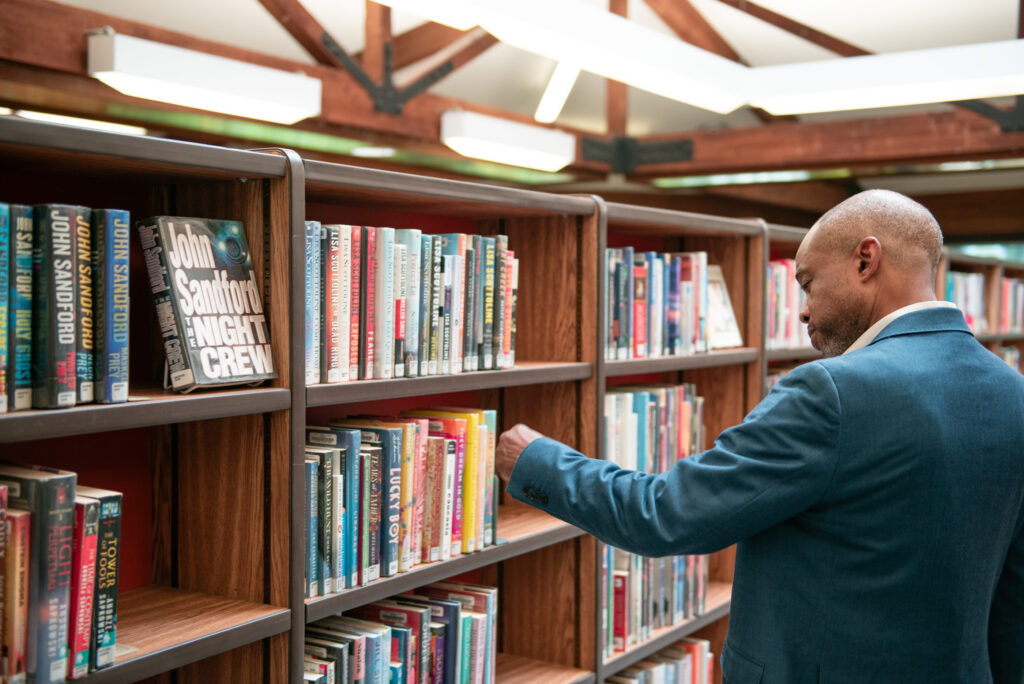
When did you become Executive Director, and what were your key priorities coming into the role?
I became Executive Director in February 2022 after a national search for a replacement for the longtime but retiring former Library Director, Jill Jean, landed in my inbox. I’m grateful to have been chosen to succeed Jill and lead this fantastic library system in the beautiful Pacific Northwest. My priorities were clear from the start: to strengthen our organizational culture, expand our community partnerships, and position the library to thrive in this county long term. That meant focusing on sustainability, staff development, and ensuring our services reflected the diverse needs of the people we serve.
How would you describe your leadership style, and how does it shape the culture at Kitsap Regional Library?
My leadership style is collaborative, transparent, and mission-focused. I believe in setting a bold vision but empowering teams to find the best ways to get there. At Kitsap Regional Library, that means fostering a culture where innovation is encouraged, communication is open, and every staff member understands how their work contributes to our larger purpose. Culture is the bedrock of any good organization, and I adhere to the notion that culture eats strategy for breakfast.
For readers who may not be familiar, can you give us an overview of Kitsap Regional Library and the communities you serve?
Kitsap Regional Library serves all of Kitsap County through nine locations, a bookmobile, and a robust online presence. We reach urban centers, rural communities, and everything in between, providing free access to books, technology, learning experiences, and spaces for connection. Our service area is diverse, spanning Navy towns, creative hubs, and growing neighborhoods—each with its character and needs.
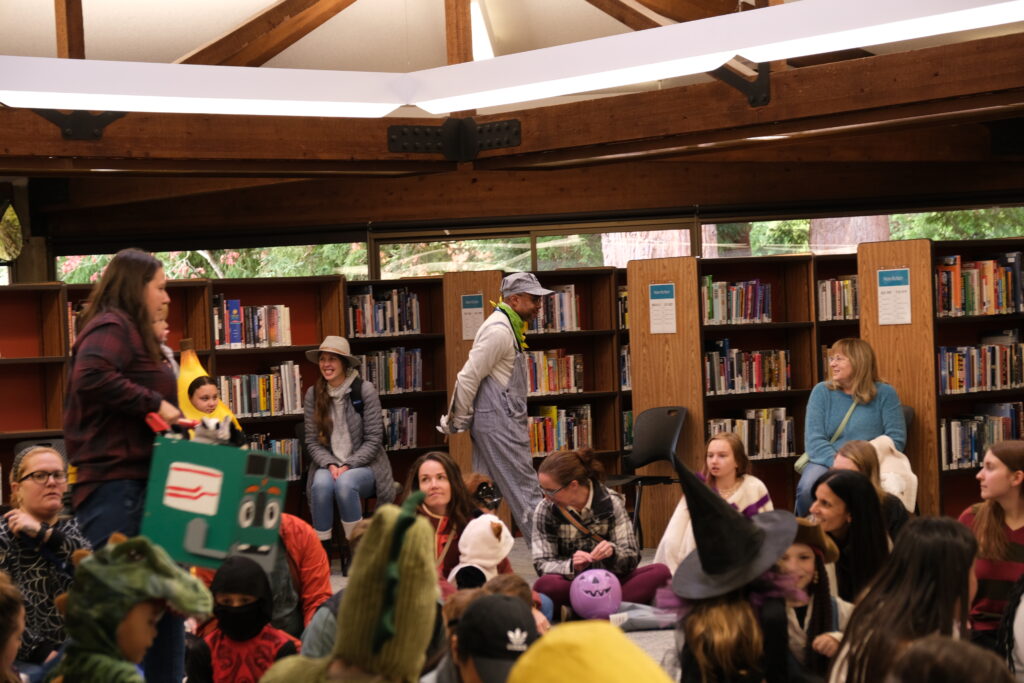
How has the library evolved under your leadership — and what changes are you most proud of?
In just a short time, we’ve deepened our focus on improving internal culture, deepening community partnerships, expanding digital resources, and we’ve started laying the groundwork for future capital projects, including exploring how to construct a new central library and connected community campus offering safe spaces and wellness for youth and families. I’m most proud of how our team has embraced change—stepping into new technology, piloting innovative programs, and finding creative ways to reach more people.
How is Kitsap Regional Library adapting to meet the changing needs of today's library users?
We’ve embraced a hybrid service model—offering more digital tools, online learning platforms, library services’ on-the-go’ such as book lockers and expanded access to our Poulsbo meeting space outside traditional library hours. Of course, it still provides vibrant in-person spaces. We are also focused on being a community connector—linking people to books and skills training, job resources, community services, and ideas!
What initiatives or programs stand out to you as especially impactful in recent years?
Our workforce development partnerships, like resume workshops and digital literacy training, have made a real difference for job seekers. Our 3rd graders go to the library, which provides every third grader with a library card and a solid foundation for reading and learning. Speaking of learning, Summer Learning continues to be our signature program, inspiring thousands of kids to stay engaged during the break. And our Making & Interest-Based Learning programs empower people of all ages to explore new skills, from 3D printing.
In what ways does KRL contribute to workforce development, education, or entrepreneurship in Kitsap County?
We provide free access to technology, training, and meeting spaces for entrepreneurs, along with tools like LinkedIn Learning and databases for research. We offer job seekers free computers, printers, and scanners for resume and digital skill building. For students, we provide resources for homework help and spaces for tutoring and collaboration. The library is often the first stop for people looking to upskill or launch a new idea.
What are some of the ways KRL is working to be more inclusive and community-centered?
We’ve prioritized community listening—designing programs and services directly responding to our communities’ needs. We’ve expanded bilingual programming, built partnerships with local organizations serving underrepresented groups, and focused on making our spaces welcoming for everyone, from the design of our facilities to the way we greet each person who walks through our doors, the library not only aims to meet people where they are, but we also aim to serve everyone, regardless of their social status, race, age, gender, sexual orientation, political affiliation. Libraries are for everyone—please come visit us!
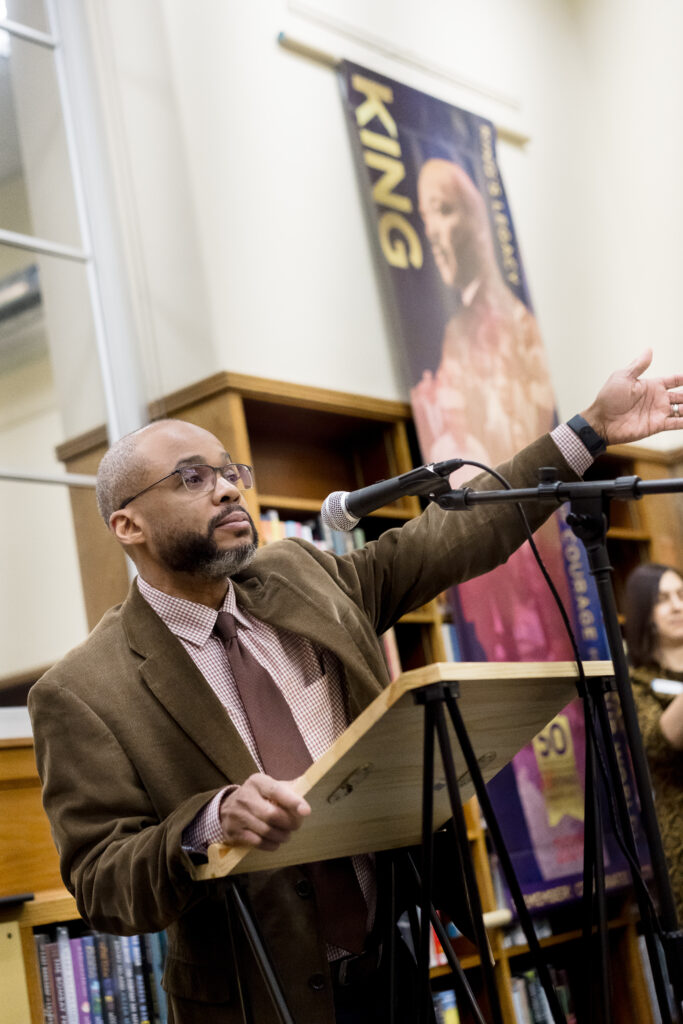
Public libraries are evolving rapidly. What do you see as the biggest opportunities or challenges over the next 5–10 years?
One of our most significant opportunities is to expand our role as a hub for lifelong learning and civic engagement. We can be where people explore new technologies, connect with local resources, and collaborate on community solutions. The challenge will be balancing that growing role with sustainable funding, ensuring libraries remain free and accessible while adapting to new demands. Ultimately, our funding structure is tied to the property tax levy, which does not allow revenue growth to keep up with inflation and other escalating costs, such as salaries and benefits. The library prides itself in being a responsible steward of the taxpayers’ resources, aiming to provide a wide range of services and materials to reflect the residents who live, work, and play in Kitsap. We are the hub for information, connection, and learning in Kitsap County, and have been for the past 80 years. Ultimately all libraries are at risk of faltering if the communities that they serve do not understand its history and relevance in modern times.
Kitsap Regional Library has been celebrating our 80th year as a unified library system, this year, although many locations have been around much longer than 1945. We invite you to grab a passport, visit all nine locations and explore all that we have to offer.
How is KRL planning for that future — in terms of technology, partnerships, or funding strategy?
We’re investing in technology that enhances access, from improved digital platforms to tools supporting expanded library access. We’re strengthening partnerships with our schools, nonprofits, and local businesses to amplify our impact. And we’re pursuing sustainable funding strategies, including our recent levy lid lift effort, to ensure we can meet community needs for decades. Libraries aren’t just buildings with books; the 21st-century library is a multifaceted organism, where you can borrow a telescope, print from your smartphone, learn to play a ukulele, and use the meeting room to host a board meeting, small reunion, or even learn to sew or garden. We’re doing it all today in libraries. One of the signs of a thriving community is a robust library system serving it.
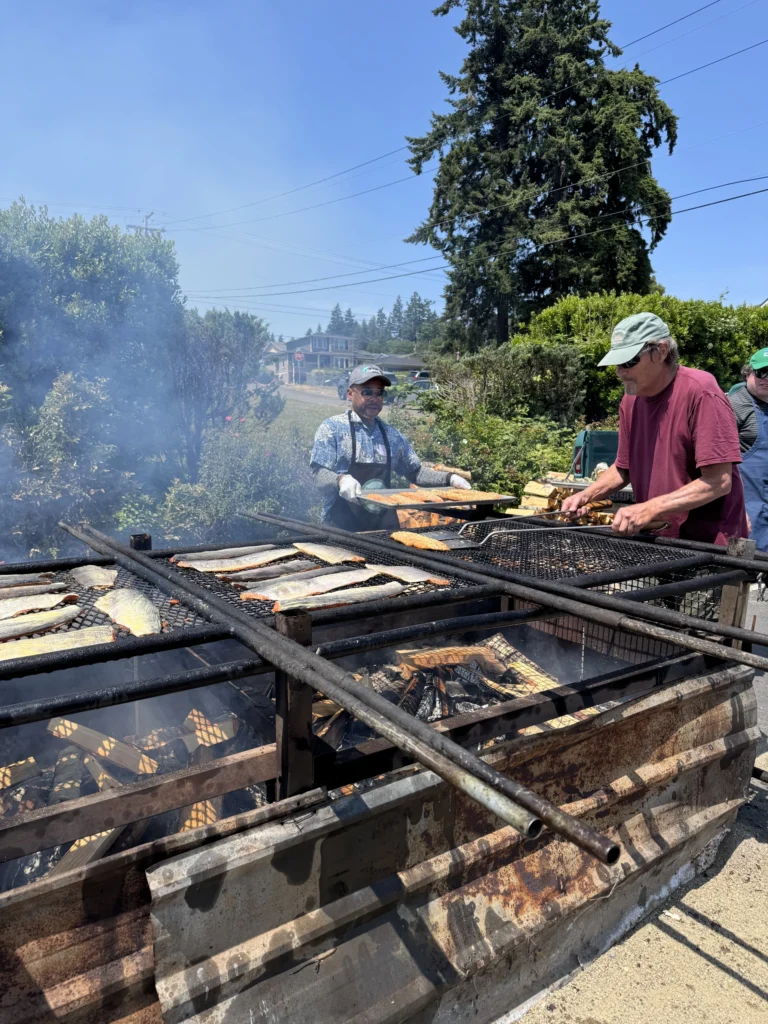
What's something about your role that would surprise most people — or that people often misunderstand about library leadership?
People often think library leadership is all about the books and managing the budget—but it’s really about the people and the relationships. Nothing works if you don’t manage the relational aspects of this role because it’s an interconnected web of systems and people that make our library system work. Don’t get me wrong, managing the budget is a massive part of my role, as well as policy review, negotiations, strategic planning, facilities development, community relations, fundraising, and managing a talented and multifaceted leadership team that helps bring our mission to life. It’s as much about civic leadership as it is about library service. It can be challenging to navigate all the nuanced complexities of what I do, but I utterly love my job and can’t imagine doing anything else.
How do you measure success at KRL — and what metrics matter most to you and your team?
We measure success by the stories told. We are impactful in many ways to individuals, families, and organizations with which we maintain partnerships. The anecdotes we receive speak to the impact of what we do, and it is gratifying to hear about how our talented staff impacts every citizen. The stories are heartwarming and ultimately validate why we’re all public servants. We also track library visits, program attendance, and digital resource use—but we also pay close attention to impact: the student who becomes a more confident reader, the small business that launches after using our resources, the isolated senior who finds connection at a library event. Success is when the library makes a measurable and meaningful difference in someone’s life. Sometimes, that is difficult to capture for various reasons. Still, twenty-five years into this game of libraries, I am confident that libraries will be counted on increasingly to be at the crossroads of learning, curiosity, and connections for Kitsap County and beyond.
Keep in touch with our news & offers
Subscribe to Our Newsletter
Thank you for subscribing to the newsletter.
Oops. Something went wrong. Please try again later.
